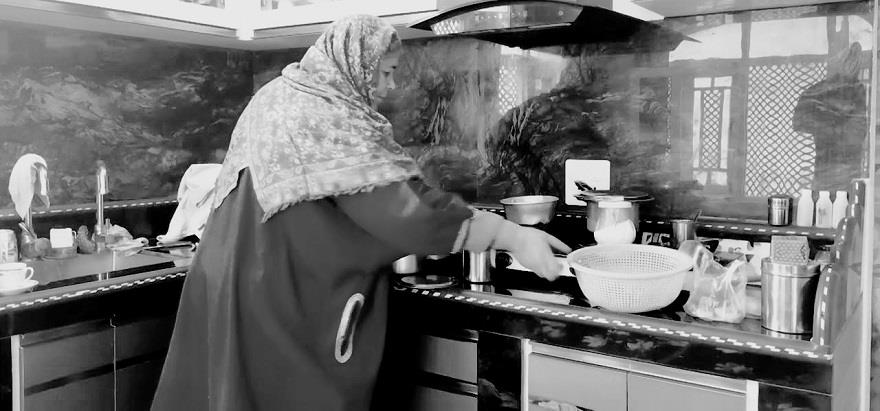
Mothers, Masters Of Kitchen Chemistry
Mothers, Masters of Kitchen Chemistry
By Mudasir Ali
A mother is usually engaged in kitchen chores, and cooking is one of the tasks that involves both physical and chemical processes. Every day, a series of scientific experiments take place in the kitchen, showcasing the fascinating applications of chemistry. However, our mothers may not always observe these processes while cooking, as they were never formally taught about them.
Knowledge is a tool that masters art, and it can be acquired both formally and informally. Everything our mother prepares in the kitchen operates on principles of chemistry.
Achieving mastery over cooking requires a series of steps, and chemistry plays a fundamental role in this process. Although chemistry has a vast scope, many of us fail to recognize its true worth and applications.
The kitchen is the best laboratory where one can observe countless science experiments. Every morning and evening, our mothers engage in cooking, which is nothing but a practical demonstration of chemistry. Most of the time, they unknowingly perform basic chemistry experiments. Cooking is not just a daily chore; it is a process deeply connected to the person who plays a key role in the kitchen-our mother.
Read Also The Essence Of A Happy Home Critical Thinking Is More Important Than Ever. How Can I Improve My SkillsShe eagerly waits in the kitchen to prepare multiple cuisines with the help of her loyal friend-chemistry. She learns chemistry by sharing her social learning experiences with it. As we know, cooking consists of both physical and chemical processes, which follow a series of steps: washing (a physical process involving cleaning), boiling (a chemical and physical process where heat causes water absorption and softens the rice) and decantation(the process of separating the boiled water from rice after vigorous heating).
Similarly, cooking vegetables and meat involves several chemical changes that occur when food is heated and prepared for consumption.
Another common process in the kitchen is the dissolution of sugar in water to form a sugar solution. Our mothers perform this task effortlessly, combining two different substances-a solvent (water) and a solute (sugar or salt)-to create a solution. Although they may not be aware of the scientific terms, they instinctively understand the process.
Dilution is another simple physical process where the concentration of sugar or salt is reduced by adding more water. This process helps adjust the taste of food. In chemistry, concentration refers to the amount of solute in a solution. This is a fundamental concept that connects chemistry with kitchen chores, especially cooking.
We, as students, can help our mothers learn basic chemistry terms in a simple and engaging way. Teaching them about solvents, solutes, dilution, concentration, and decantation can enhance their understanding of what they already do daily. There should be no hesitation in introducing them to scientific concepts. Cultivating a habit of learning in the kitchen can make cooking a more scientific and insightful process for our mothers. Basic chemistry knowledge can help them understand solutions, mixtures, sieving, and decantation-all of which involve physical and chemical changes. These concepts are fascinating and easy to grasp when connected to real-life kitchen activities.
Our mothers are truly kitchen-scientists, engaging in daily experiments without realizing it. Every day, they handle chemical reactions while cooking, just as a laboratory scientist performs experiments in a lab. While a lab scientist follows scientific procedures, a kitchen scientist carries out experiments through simple steps, using heat, mixing, and separation techniques. The kitchen is like a mini-laboratory, where chemistry plays an essential role in food preparation. An educated son or daughter can greatly assist their mother by teaching her basic terms.
Let's expose our mothers to the world of chemistry. There is no hard-and-fast rule for learning scientific concepts but daily practice and observation can make a difference. Chemistry is a loyal friend to our mothers, guiding them in their cooking journeys. We should not hesitate to teach them new scientific terms. Providing them with scientific awareness in cooking will not only make their work more meaningful but will also enhance their learning experience.
-
The writer is a columnist and can be reached at [email protected]

Legal Disclaimer:
MENAFN provides the
information “as is” without warranty of any kind. We do not accept
any responsibility or liability for the accuracy, content, images,
videos, licenses, completeness, legality, or reliability of the information
contained in this article. If you have any complaints or copyright
issues related to this article, kindly contact the provider above.


















Comments
No comment